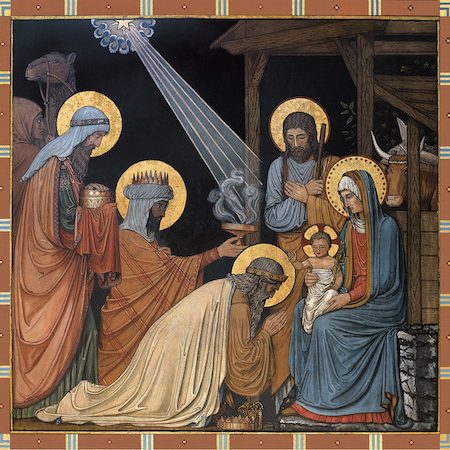If the message of Christmas is real, then our preparations for it need to be radically life-changing.
Sermons on Christmas
God reaches out to us through babies and elderly folks with a message of love and redemption that cuts through the theological justifications of empire and warmongering and calls us to peace.
The the birth of Jesus we see the beginning of a peace mission that is not based on force but on patience, forgiveness and presence.
The particularity of Jesus’s identity scandalises our tribal sensibilities, but our attempts to erase such details in favour of a more “universal” truth inevitably fail to convey the good news of God with us.
A sermon on John 1: 1-18 by Audrey Kateena A video recording of the whole liturgy, including this sermon, is available here A transcript of the sermon will be available here soon
A modern paraphrase of a homily for the Feast of the Nativity by Ephraim the Syrian (306-373CE) taken from his second Christmas hymn.
The joyous message of Christmas demands a response from us all year round.
The child of God became a human, so that humans could become children of God.
God’s people are called to generously share their gifts, but also to humbly receive the gifts that are offered to us from unexpected sources.
In the face of monumental devastation and suffering, God speaks a word, and the word becomes flesh.
When God is moving to do something new among us, it almost always seems scandalous, immoral and offensive to many, and is just as likely to involve those who are regarded as morally suspect.
The Christmas stories assure us that Jesus is the one who brings light into our darkness.
Faithful waiting for for the fulfilment of God’s promises can leave us feeling compromised and alienated in the world around us.
What is God challenging you to return to? Will you be a witness to the joy and love, and the possibilities of the alternative world heralded by Jesus?
Jesus models for us a willingness to listen, learn and grow rather than a domineering certainty that insists on knowing who’s right and who’s wrong.
It is not from the halls of power but from humble places that the love which offers wholeness and healing and peace erupts into life.
The baby whose coming is awaited will turn the world upside down (not just the lives of its parents!), and our counter-cultural observance of Advent is a necessary preparation of ourselves for that reality.
The coming of Christ to transform the present world into the Kingdom of God will be earth-shattering, but we easily lose sight of it in our anticipation of “another Christmas”.
Jesus was born to reveal and fulfil what God had long sought to do; set people free to live joyously as God’s children.
The nativity story proclaims the basic themes of the gospel message; God enters into our suffering world as a victim of our violence, and is rejected by most but recognised by the nobodies.

















